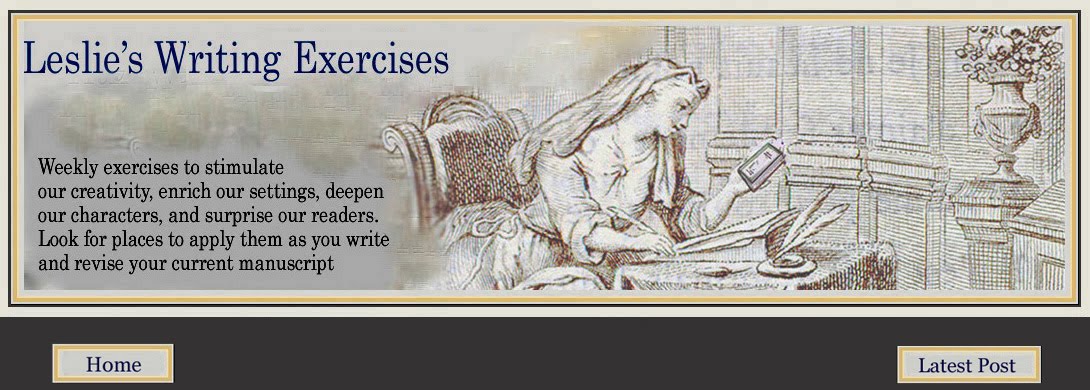Some writers dislike them. Others despise them. Some find them boring and a waste of already too-limited writing time. Others see them as too restrictive, taking the writer far away from where he really wants to be: home with his own settings and characters; his own conflicts; his own carefully woven plots and subplots.
Believe me, I hear you. I don't want to leave home either. That's why I choose exercises that are tweakable for the most part; ones I can twist and turn and reconfigure to work for just about any project-in-progress, be it short story, novel, or memoir.
What I really love about writing exercises is how they take me out of that dreaded state of mind in which everything is expected to come out perfect on the first pass, or as John Gardner would describe it: that dark psychological mindset with the ghost of the young James Joyce standing horribly at my back. I hate that mindset. I love how exercises loosen me up and get me to examine problematic passages from a whole new perspective. I love to steal delicious passages from the novels and authors I admire and try to do something similar in my own scenes. Josip Novakovich, author of the wonderful Writing Fiction Step by Step says:
When you read novels, watch for scenes that work particularly well. Analyze them. Can you do something similar? If it's all right in tennis to imitate a good stroke, why not in writing? You will still end up doing it your way.
I have yet to apply an exercise to a passage in my own fiction that failed to improve it exponentially. After focusing for some time on one particular element of craft, the passage is always richer for the time spent; more textured, more nuanced; better in every way. I encourage you to research this phenomenon for yourself. As John Gardner says in The Art of Fiction:
When the beginning writer deals with some particular, small problem, such as description of a setting, description of a character, or brief dialogue that has some definite purpose, the quality of the work approaches the professional.
Now who wouldn't want to strive for that?
~
Josip Novakovich, Writing Fiction Step by Step
John Gardner, The Art of Fiction


